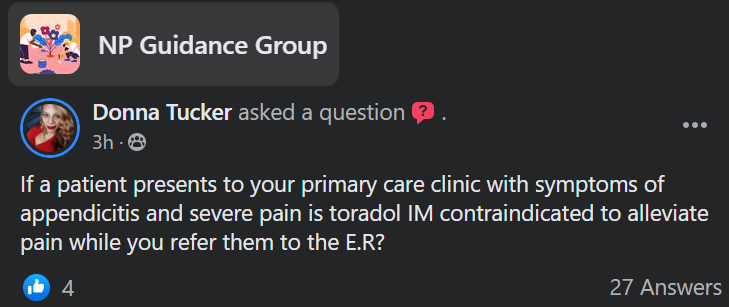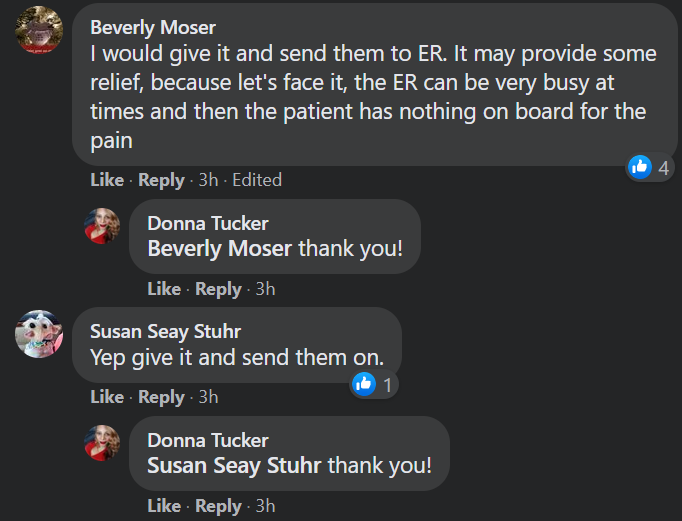NSAIDs before surgery, sure why not?
💬 comments
NSAIDs before surgery, what could possibly go wrong?

Giving NSAIDs to a patient who will need, or may likely need surgery (such as a case of acute appendicitis) is one of those cardinal sins of medicine, one that typically results in the surgeon chewing your head off. You just don't do it, especially not right before a procedure, because, you know, they can cause bleeding and stuff! Let's make one thing very clear - and to answer NP Donna's question - yes, Toradol is contraindicated prior to surgery per its FDA label.
TORADOL is CONTRAINDICATED as prophylactic analgesic before any major surgery.
You would think that midlevels would know this, given the robust education they receive in basic pharmacology as part of their online coursework (insert sarcastic chuckle here). Perhaps even more horrifying is that at least some members of the peanut gallery seem to explicitly endorse this, without providing much in the way of medically justifiable reasoning whatsoever:

"The ER can be very busy at times and then the patient has nothing on board for the pain" is totally nonsensical. If a patient is truly having severe pain in an outpatient clinic, any competent physician would not be hesitating to activate EMS; stronger, non-contraindicated analgesics (e.g. opiates or ketamine) could be given by EMS en route, and even in the busiest EDs, patients in acute distress (especially those arriving by EMS) are typically triaged to higher severity levels and prioritized for immediate evaluation. Gotta love NP Susan's confidence though. "Just give it and send them on"!
This is one of those examples that highlights everything wrong with midlevels doing social media consults. Never mind the fact that unvetted individuals are giving conflicting, if not outright false information - what happens if someone actually takes this advice, gives their patient Toradol/NSAIDs immediately prior to surgery, and the patient suffers a major complication or death from bleeding? Who's going to be held responsible? How is it going to look in court when it's revealed that the patient's midlevel not only solicited for medical advice on Facebook, but made incorrect and dangerous clinical decisions based on faulty information? RIP your job, if not your license too.